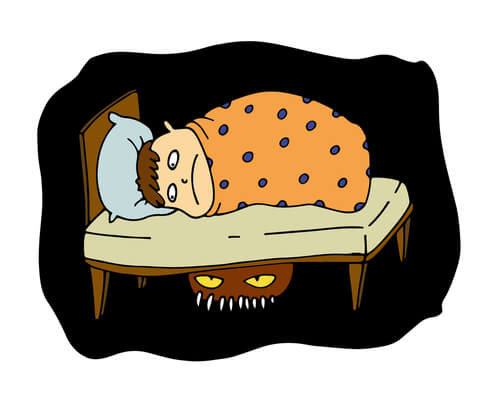
Sleep disorders are so widespread and numerous, which resulted in the creation of a special sub-specialty called Sleep Medicine. Patients who suffer from sleep disorders find it hard to fall asleep, stay asleep or may wake up too early in the morning before getting proper rest. According to the International Classification of Sleep Disorders, there are 50 specific sleeping disorders. When it comes to disorders that prevent the patient from having sufficient rest during the night, an effective treatment must be introduced in order to solve this problem.
Sleep disorders are common and occur at least once at every person's life. If insomnia pertains to prevent a person from getting the rest they need, the situation becomes serious and requires treatment. Generally, such disorders are treated with either sleeping pills or cognitive behavioral therapy.
The purpose of this research is to explain why cognitive behavioral therapy is better than sleeping pills when it comes to treating sleep disorders.
Cognitive behavioral therapy is usually recommended when a person is first diagnosed with a sleep disorder. This program is specially structured to help patients replace and identify the behaviors that lead to sleep deficiency. Unlike the sleeping pills that are only temporary and do not offer long-lasting relief, CBT helps patients overcome the causes of their sleeping problems.
Depending on the patient's needs, a specialist may recommend one or several cognitive behavioral therapy techniques, such as stimulus control therapy, sleep restriction, sleep hygiene, relaxation training, sleep environment improvement, remaining passively awake and biofeedback. Generally, the most effective treatments of sleep disorders consist of a combination of several techniques.
Sleep medications are often prescribed to people who cannot sleep at night. Sure, these are an effective sleep disorder treatment, but they are not known to provide long-term relief. A sleeping pill is known to provide immediate relief when a person is grieving or is under a lot of stress in a certain period of their lives. This is why sleeping medications are often not approved or recommended for prolonged use. Sleeping medications are not a long-term insomnia treatment and even though they may seem right at the moment, a patient has never solved their sleep disorder by only taking sleeping pills.
If a person is suffering from long-term sleeping problems, they may become dependent on sleeping pills. In some cases, people may even become non-responsive to such medications, while in others the sleeping pills start causing side effects. Therefore, cognitive behavioral therapy is the better treatment choice for those people who suffer from chronic sleep disorders.
Unlike the sleeping medications, CBT works by addressing the causes of sleep deprivation, rather than relieving the symptoms. Sometimes, the two need to be combined because the CBT does not show immediate relief of symptoms in most cases. When this happens, a combination of the two is inevitable but medications must be cut off after a certain while and the focus should be placed on cognitive behavioral therapy.
If sleep disorders remain untreated or are treated improperly, the lack of sleep can increase the risk of developing health conditions. Such conditions include heart diseases, diabetes, high blood pressure and even chronic, high-level pain. However, a rarely known disadvantage of over-the-counter sleeping medications is that they can also contribute to the insomnia.
According to the Foundation of Cognitive Therapy and Research (US), 'the way that individuals perceive a situation is more closely connected to their reaction than the situation itself'. This means that every person with a sleep problem can benefit from such techniques, even those who experience physical problems or additional health problems that resulted from this condition. So far, there is no evidence of this therapy having any side effects in patients.
ConclusionThis research paper had the aim of stating the reasons why cognitive behavioral therapy is a better option than sleeping pills in cases of sleeping disorders. Despite the fact that sometimes a combination of the two is critical in treating insomnia, basing the treatment on medications can cause side effects and never results in long-term treatment.






